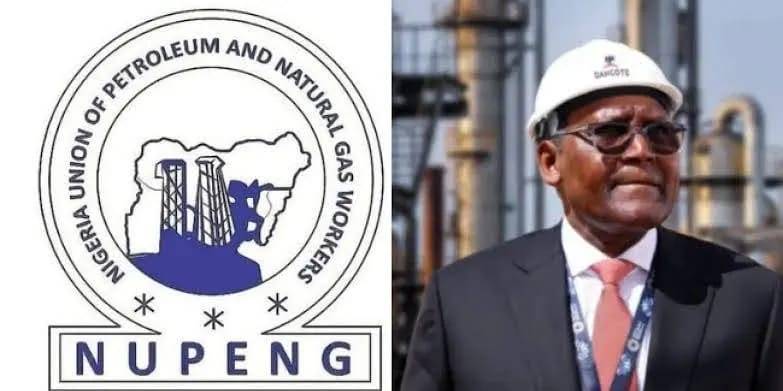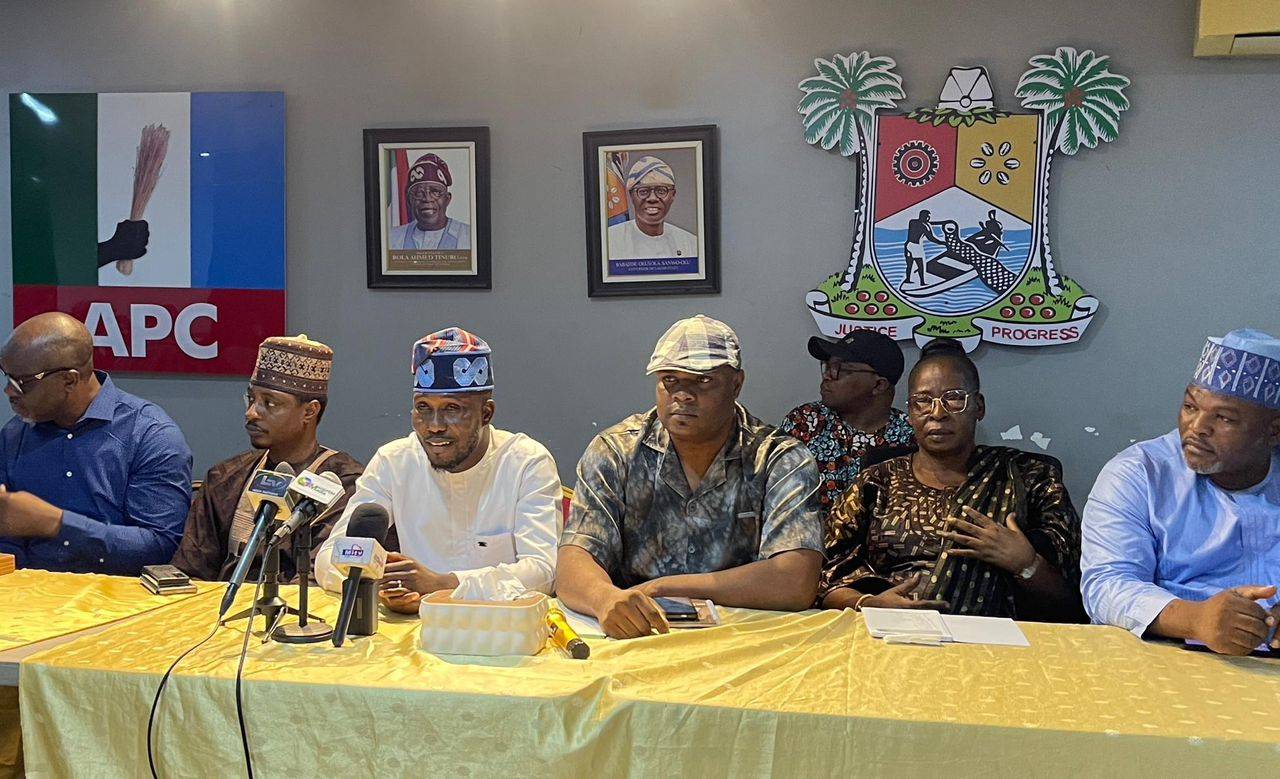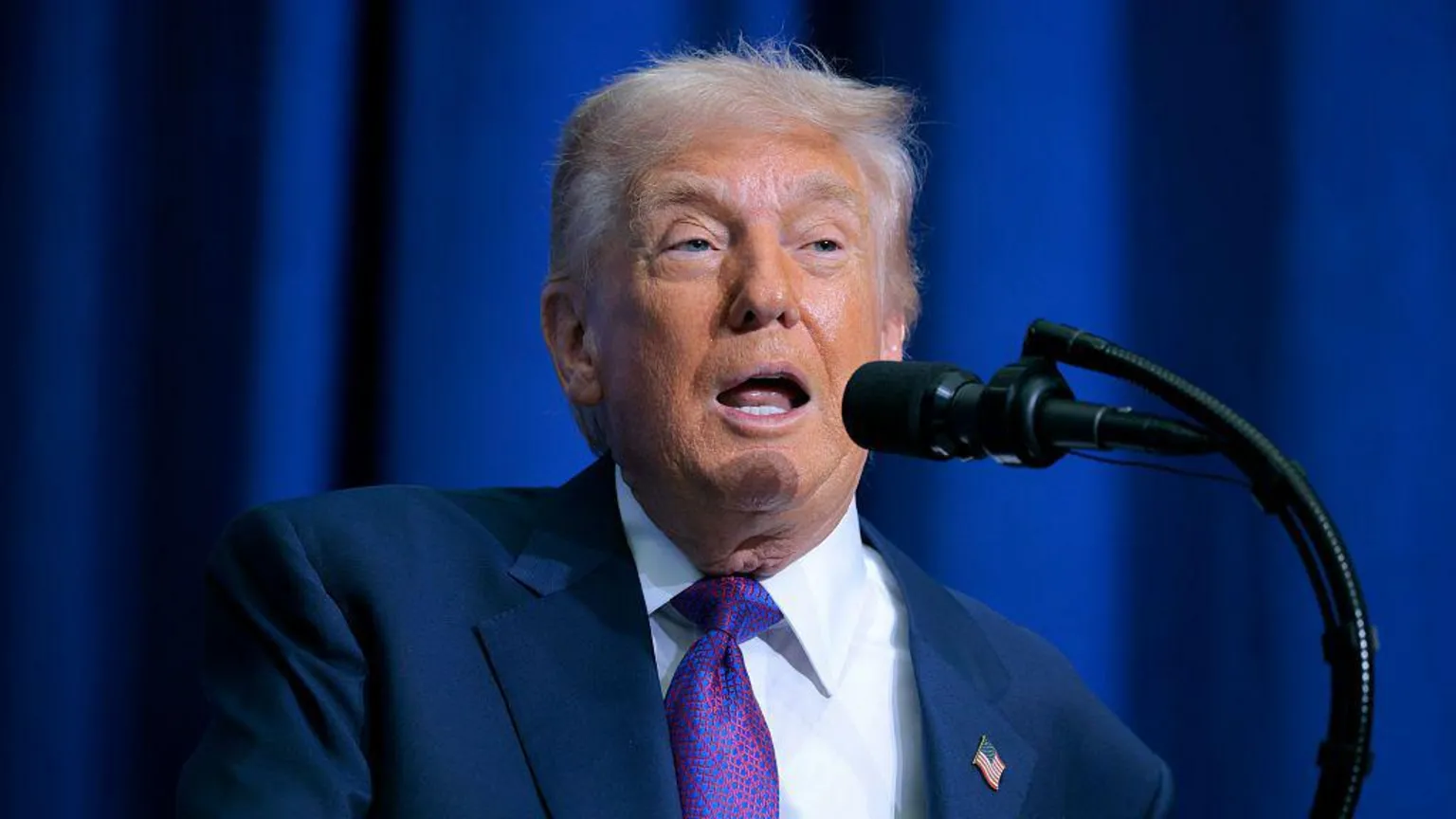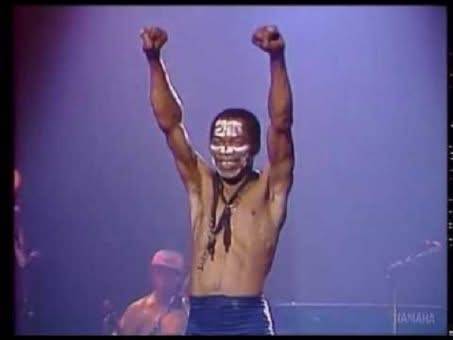Nigeria once again finds itself at a familiar crossroads. The recent statement by the Nigeria Union of Petroleum and Natural Gas Workers (NUPENG) against Alhaji Aliko Dangote and Alhaji Sayyu Dantata is not simply an attack on two businessmen. It is a dangerous assault on the very idea that Nigeria can build, own, and sustain its own energy future. More importantly, NUPENG may not realise it, but they are inadvertently doing the devil’s bidding by implying Nigerians should remain subservient to foreign interests with regards to our energy needs.
This is why this debate matters. Let nobody miss the fact that this subject strikes at the heart of our national development. For decades, Nigeria has been trapped in the vicious cycle of exporting crude oil and importing refined products at punishing costs. Every litre bought at inflated prices is a monument to national failure. The Dangote Refinery, however, is not just a private enterprise. It is a national symbol of ambition. It is a clear pointer to what is possible when Nigerians invest boldly in their own land. To resist it is to resist progress itself.
As His Royal Majesty King Bubaraye Dakolo, Chairman of the Bayelsa Traditional Rulers Council, reminds us, “the Niger Delta and Nigeria in general benefit and profit more when Nigeria’s oil and gas are locally refined and globally marketed.” Anyone who fails to see the truth in this statement can be said to be more of a saboteur working against Nigeria’s national interest.
Yes, unions have the right to organise. That right is sacred and enshrined in law. At the same time, that right must never become a weapon to hold the nation hostage or to defend inefficiency. What NUPENG appears to be defending here is not the Nigerian worker but its own monopoly and the dues that fuel its capacity for disruption.
■ Competition is not sabotage
Let us be clear: a fleet of 10,000 modern CNG trucks entering the market is not sabotage. It is competition. It is capital at work. It is the essence of a free market where only the efficient survive. Inefficient operators will complain; they will cry sabotage, but discomfort is the natural price of progress. This has been proven true right from childhood when we all learned to walk, fall after the first few steps, feel the pain, and yet get up to try again.
If truth be told, there is no greater Nigerian pastime than blaming sabotage for every challenge that emerges. A neighbour buys a generator that works. Suddenly, yours refuses to start, and you suspect foul play. In Nigeria, even rainfall can be blamed on sabotage if it refuses to arrive on time. Now, NUPENG sees Dangote’s trucks rolling in and calls it sabotage. Nigerians deserve better than this brand of comic theatre dressed up as economics.
NUPENG knows this. Its alarm is not about the exploitation of workers; it is about the shrinking of its empire. A company that directly employs thousands of drivers dilutes NUPENG’s hold and reduces its capacity to shut down the country at will. That is the real grievance.
And let us not forget: union membership is voluntary. Nigerian law protects the freedom of association, not the monopoly of one union. If drivers wish to form a new body, the Registrar of Trade Unions is empowered to register it. The choice belongs to the workers, not to NUPENG’s leadership.
■ Who truly represents the workers?
On this issue, the workers themselves have spoken. The Petroleum Tanker Drivers branch publicly dismissed NUPENG’s position as insensitive and unacceptable. Traditional rulers have also weighed in. His Royal Majesty King Bubaraye Dakolo, Chairman of the Bayelsa Traditional Rulers Council, has offered “the right hand of fellowship” to Dangote and urged groups, and individuals not to sabotage this lofty idea.
These are not minor voices. They are the communities and citizens who bear the brunt of oil extraction and fuel scarcity. Their message is unmistakable: Dangote’s vision is aligned with the national interest. NUPENG’s reactionary posture is not.
And the facts bear this out. Over the past year, no other organisation has done more to stabilise fuel prices than the Dangote Refinery. By driving efficiency and investing at scale, Dangote has already offered relief to millions of Nigerians. With a cheaper CNG-powered logistics network, costs will fall even further. This is a pro-people policy. It is the kind of sincere management of scarce resources that Nigeria desperately needs. As King Dakolo put it bluntly, “No individual or corporation has been as responsible for stabilising petrol prices as Alhaji Dangote and the Dangote Refinery in the last year.”
■ NUPENG’s true fear: Loss of control, not workers’ welfare
For the avoidance of doubt, beneath NUPENG’s bluster lies a stark truth: their strike threat, scheduled for Monday, September 8, 2025, is not about protecting workers but about clinging to their fading grip on power. Their real grievance is not exploitation but the audacity of Dangote’s truck drivers to choose freedom over forced unionisation. By demanding that these drivers be barred from forming their own unions or opting out entirely, NUPENG exposes its monopolistic heart, a stance echoed by the Nigeria Labour Congress’s call for “immediate unionisation” and accusations of “corporate greed.” This reckless posturing risks plunging Nigeria into chaos, with fuel scarcity looming as tanker drivers halt distribution, leaving filling stations dry and ordinary Nigerians stranded.
We are all familiar with this impending national tragedy: Long queues, skyrocketing prices, and economic paralysis are the predictable fruits of NUPENG’s self-serving gambit. We therefore call on President Bola Tinubu and the federal government to deploy security agencies with urgency in ensuring this strike is stopped in its tracks. Nigeria’s energy security and the welfare of its people must not be held hostage by a union more concerned with dues than progress. The NLC’s own threat of solidarity action and mobilisation, as declared by President Joe Ajaero only underscores the need for decisive intervention to avert this needless crisis.
■ Entrepreneurship as a national asset
In all this, here is what must not be lost in the noise: Dangote is not merely a businessman. He is an institution. While others complain about government policy and write endless memos, he rolls up his sleeves and builds. Cement factories, fertiliser plants, and now the largest single-train refinery in the world. These are not PowerPoint slides or policy papers; they are concrete monuments to Nigerian ambition.
Placed in global context, the Dangote Refinery already ranks among the ten largest refineries in the world, processing around 650,000 barrels per day, with plans to ramp up to 700,000 bpd by the end of 2025, potentially overtaking South Korea’s Onsan Refinery. It even outstrips Europe’s largest refineries in capacity.
Dangote has delivered what decades of government task forces and committees could not. Countries such as India and Brazil have also harnessed private entrepreneurship to overcome union bottlenecks and structural inertia. While India’s Jamnagar refinery towers above all, Dangote’s Lekki facility proves that Africa, too, can play at the world scale.
This entrepreneurial spirit is what we should be celebrating, not vilifying. Every truck that rolls out of the Dangote fleet is more than metal on wheels. It is a moving billboard of self-reliance. Every litre refined in Lekki instead of Rotterdam or Singapore or Malta is a reminder that Nigeria can meet its own needs. This is nation-building in its purest form.
As King Dakolo said with refreshing candour, “It is preposterous for any organisation or individual to accuse Alhaji Dangote or the Dangote Refinery of being a monopoly. Their industry is an open industry, and anybody or a group of persons can enter it.”
■ The choice before us: Progress or inefficiency
This is why the government must act decisively. The choice is simple. Either we bow to old monopolies that thrive on inefficiency, or we embrace bold investments that can transform our economy. Traditional leaders, workers, and ordinary Nigerians have already chosen. They stand with progress.
Nigeria cannot continue to unionise around import dependency. We must unionise around ambition. We must unionise around innovation. We must unionise around local manufacturing and distribution. We must unionise around the Nigeria First policy.
The Dangote and Dantata investment is more than business. It is a declaration that Nigeria can chart its own destiny, create jobs, build cleaner energy systems, and safeguard its own security. To oppose it is to mortgage our future to the very inefficiencies that have kept us poor.
The time for half measures has passed. Nigeria’s energy market needs clarity, courage, and competition. It needs leaders who will not blink in the face of threats. Above all, it needs a nation ready to stand tall and back its own.
And so we say it without hesitation: For the sake of national prosperity and the promise of self-sufficiency, we stand with Dangote. To do otherwise would be to stand against Nigeria itself.
■ Mr Dan D. Kunle is an energy and market economy analyst.













